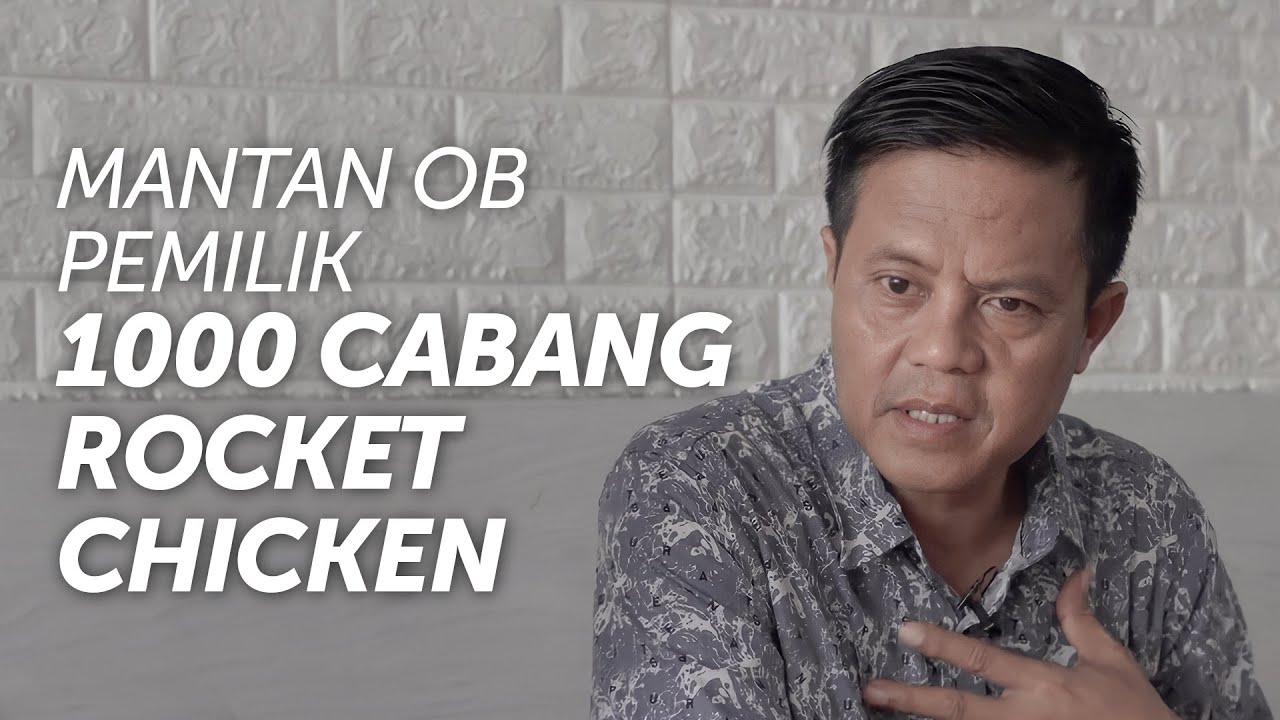Modal Limbah Budidaya Cacing Sutra di Sawah Hasilkan Jutaan Rupiah Tiap Hari
Summary
TLDRJulian Wahyu Prasetyo, also known as 'Cacing Sutra Pakdepo,' shares his inspiring journey from humble beginnings in 1999 to running a successful cacing sutra (worm) farming business in Magelang. Utilizing local rice fields and tofu waste for breeding, he has built a steady customer base across various regions. Julian highlights the importance of hard work, perseverance, and not being afraid to take on unconventional jobs. He encourages others, particularly young people, to embrace any opportunity for growth. His goal is to expand his business and spread the word about cacing sutra to a broader audience.
Takeaways
- 😀 The speaker, Julian Wahyu Prasetyo, emphasizes the importance of not being ashamed to pursue any form of work, as long as it provides for one’s livelihood.
- 😀 Julian's business involves farming 'cacing sutra' (bloodworms), which he started in 1999 in the village of Soka, Mertoyudan, Magelang.
- 😀 The bloodworms are harvested from rivers and ditches, and their cultivation has expanded over the years, now occupying a thousand square meters of land.
- 😀 The advantage of cultivating bloodworms in rice fields is that they are less affected by flooding, which helps in their growth and reproduction.
- 😀 Bloodworms (or 'cacing sutra') are soft-bodied nematodes, often used as fish feed, particularly for small fish like lele (catfish), nila (tilapia), koi, and even gabus (snakehead fish).
- 😀 The process of cultivating bloodworms involves using wastewater from tofu factories as a rich source of organic nutrients, which is ideal for their growth.
- 😀 To harvest the worms, Julian and his team use special nets and jarring methods, with a harvest schedule of both morning and afternoon sessions.
- 😀 Bloodworms are collected and stored in containers where they rise to the surface after about 1-2 hours, making them easy to extract.
- 😀 After collection, the worms are packaged and cooled with ice to ensure freshness and to preserve oxygen levels, which helps extend their shelf life.
- 😀 Julian has a loyal customer base, mainly in the Magelang and Purworejo regions, and even in Sleman and Jogja, with prices ranging from IDR 5,000 per cup.
- 😀 He encourages young people not to be embarrassed by manual labor or unconventional jobs like bloodworm farming, as they can be a valuable source of income.
- 😀 Julian’s future goal is to expand his business, making it more widely recognized and accessible to potential customers across the region.
Q & A
What is the main business that Julian Wahyu Prasetyo runs?
-Julian Wahyu Prasetyo, known as Cacing Sutra Pakdepo, runs a bloodworm farming business, where he breeds and sells *cacing sutra* (bloodworms) primarily used as fish feed.
How did Julian get started with his bloodworm farming business?
-Julian was introduced to the business by a friend from Muntilan. His father taught him the process of extracting bloodworms from rivers and parits, which eventually led him to start his own farm.
What are the main challenges Julian faced when starting his bloodworm farm?
-Initially, Julian faced the challenge of limited space for farming. He overcame this by renting paddy fields and learning the breeding process. One of the ongoing challenges is maintaining a steady supply of tofu waste, which is essential for the bloodworms’ growth.
What makes Julian’s bloodworm farming process unique?
-Julian uses tofu waste as an organic feed for his bloodworms. This waste is sourced from local tofu factories, providing a sustainable and effective solution for breeding bloodworms.
What are the benefits of cultivating bloodworms in paddy fields?
-Cultivating bloodworms in paddy fields offers several advantages: they are safe from flooding, which can carry the worms away, and the environment is conducive for rapid growth and reproduction.
What type of fish commonly rely on bloodworms as feed?
-Bloodworms are commonly used as feed for fish such as *lele* (catfish), *nila* (tilapia), *ikan koi* (koi carp), *ikan cupang* (betta fish), and *ikan gabus* (snakehead fish).
How does Julian ensure the quality of the bloodworms he sells?
-Julian ensures the quality of his bloodworms by regularly harvesting them, packing them in containers with ice to maintain freshness, and carefully storing them to prevent damage.
What is the harvesting process for the bloodworms?
-The bloodworms are harvested twice a day, in the morning and late afternoon. The process involves using nets to collect the worms from the paddy fields, followed by placing them in containers. After about one to two hours, the bloodworms emerge at the surface, and they are then collected for packaging.
What message does Julian want to share with young people regarding unconventional work?
-Julian encourages young people to not be ashamed of doing unconventional jobs, such as bloodworm farming. He emphasizes that hard work and perseverance, regardless of the job, can lead to success and prosperity.
How can customers contact Julian to purchase bloodworms?
-Customers can contact Julian through his Facebook page, 'Cacing Sutra Bapak Dipo,' or via WhatsApp at 0822-1813-7861 to purchase bloodworms or inquire about his business.
Outlines

このセクションは有料ユーザー限定です。 アクセスするには、アップグレードをお願いします。
今すぐアップグレードMindmap

このセクションは有料ユーザー限定です。 アクセスするには、アップグレードをお願いします。
今すぐアップグレードKeywords

このセクションは有料ユーザー限定です。 アクセスするには、アップグレードをお願いします。
今すぐアップグレードHighlights

このセクションは有料ユーザー限定です。 アクセスするには、アップグレードをお願いします。
今すぐアップグレードTranscripts

このセクションは有料ユーザー限定です。 アクセスするには、アップグレードをお願いします。
今すぐアップグレード関連動画をさらに表示

BUDIDAYA CACING SUTRA

TOKO KOPI TUKU | ANDANU PRASETYO - BISNIS KOPI, BUKAN BERARTI HARUS CINTA KOPINYA

Bisnis Ini Cara Paling Mudah Untuk Menghasilkan Uang

DARI OB HINGGA PUNYA 1000 CABANG! INI KUNCI SUKSES OWNER ROCKET CHICKEN!!

Terjerat Lingkaran Hutang Sempat Hidup Di Kolong Jembatan Kini Sukses Bisnis Retail

Strategi Bisnis Modern: Kuasai Data = Kuasai Pasar! Bisnis Auto Melejit Pakai Cara Ini.
5.0 / 5 (0 votes)
